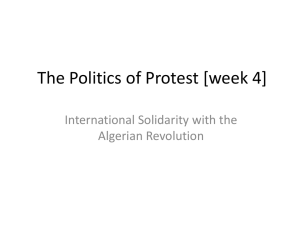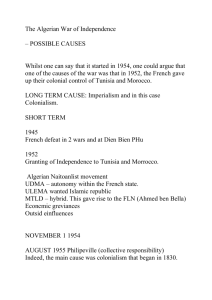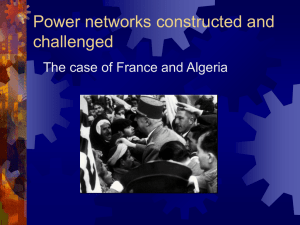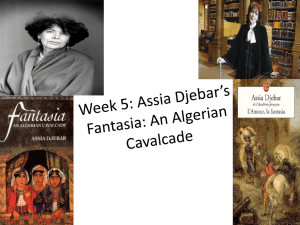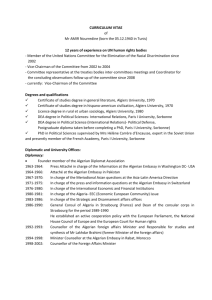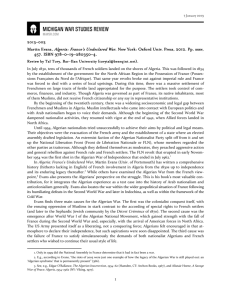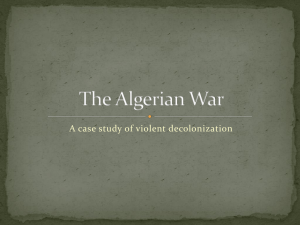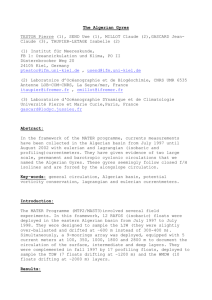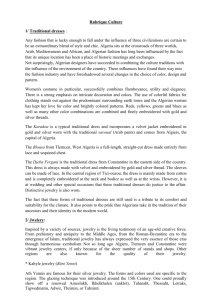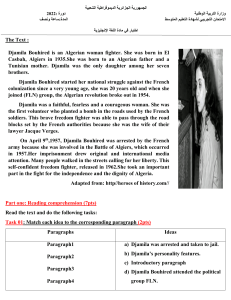Reactions of Algerian government
advertisement
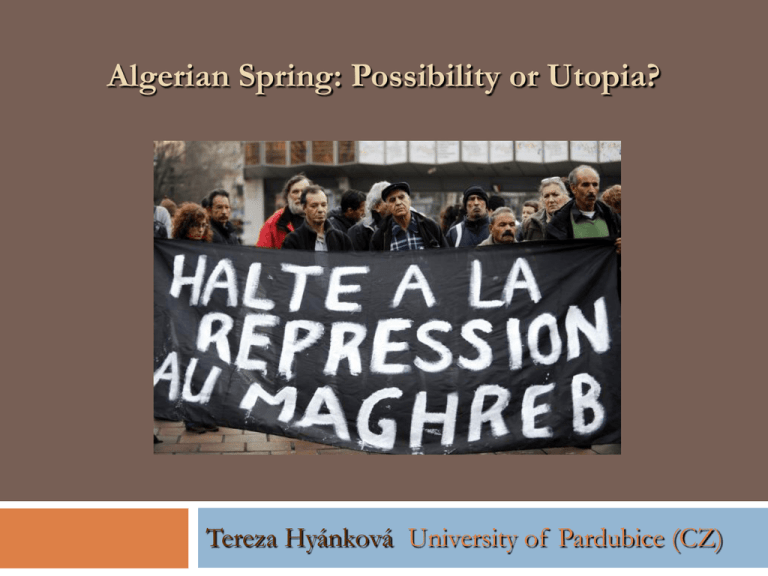
Algerian Spring: Possibility or Utopia? Tereza Hyánková University of Pardubice (CZ) Questions ? ? ? ? I will focus on: How can we explain that the Algerian regime did not change? ? ? ? ? ? Is there a possibility it will happen in the near future? Algerian protests 1988 change of political regime Protests in Kabylia (Bejaia, Tizi Ouzou) since 1980 Protests on 29 December 2010 (unemployment, the lack of housing, food-price inflation, corruption) Self-immolations (since January 2010) Protests in January and February 2011 (echo of Egyptian events) Local protests Multiple factors: Failure of the democratic transition in 1990 – skepticism towards political change, fear of violence Absence of a dominant leader that would symbolize the authoritarian regime and on which the rage and frustrations of people can focus Reaction of Algerian government – repressions x lowering of food prices (oil, flour), social benefits; political reforms Disintegrated political opposition; lack of trust and support of Algerian population for existing opposition political parties Berber-Arab division Absence of initial enthusiasm and eagerness concerning revolutions in Tunisia, Egypt and Libya Failure of the democratic transition in 1990 1990, 1991 municipal and parliamentary elections: victory of the FIS (Front islamique du salut) Cancelation of the second round of parliamentary elections Persecution of the FIS Terrorism – GIA (Groupe islamique armé), 100 000 – 200 000 estimated victims Absence of a symbol of the authoritarian regime There is no person that would symbolize the authoritarian regime and on which the rage and frustrations of people can focus as it happened in Tunisia, Egypt and Libya The whole system is the cause of frustration of Algerian population Rallies and riots – regular and ordinary events in Algeria Abdelaziz Bouteflika Reactions of Algerian government Repressions Lowering of food prices Social benefits Possible: oil revenues Lifting of state of emergency (since 1992) Reactions of Algerian government 6. Political reforms - revision of the Constitution: Revision of the election law Revision of the law on political parties Promulgation of the law concerning representation of women in parliament Strengthening of prerogatives of local assemblies Extension of the association movement sphere Revision of the information code Threatening by Islamism and Berberism 1. 2. 3. 4. 5. Disintegrated political opposition FLN (Front de la libération national) RND (Rassemblement national démocratique) – Ahmed Ouyahia „Kabyle“ parties: FFS (Front des Forces Socialistes), RCD (Rassemblement pour la Culture et la Démocratie) Islamists: MSP (Mouvement de la société pour la paix, Frères musulmans), Ennahda, FIS (banned) CNCD (Coordination nationale pour le changement démocratique) RCD, Ennahada, PST (Parti sociliste des trvailleurs) May elections 2012 Source: www.north-africa.com Multiple factors: Failure of the democratic transition in 1990 – skepticism towards political change, fear of violence Absence of one person that would symbolizes the authoritarian regime and on which the rage and frustrations of people can focus Reaction of Algerian government – repressions, lowering of food prices (oil, flour), social benefits; small political changes Disintegrated political opposition; small trust and support of Algerian population for existing opposition political parties Berber-Arab division Absence of initial enthusiasm and eagerness concerning revolutions in Tunisia, Egypt and Libya Thank you for your attention. Tereza Hyánková tereza.hyankova@upce.cz
